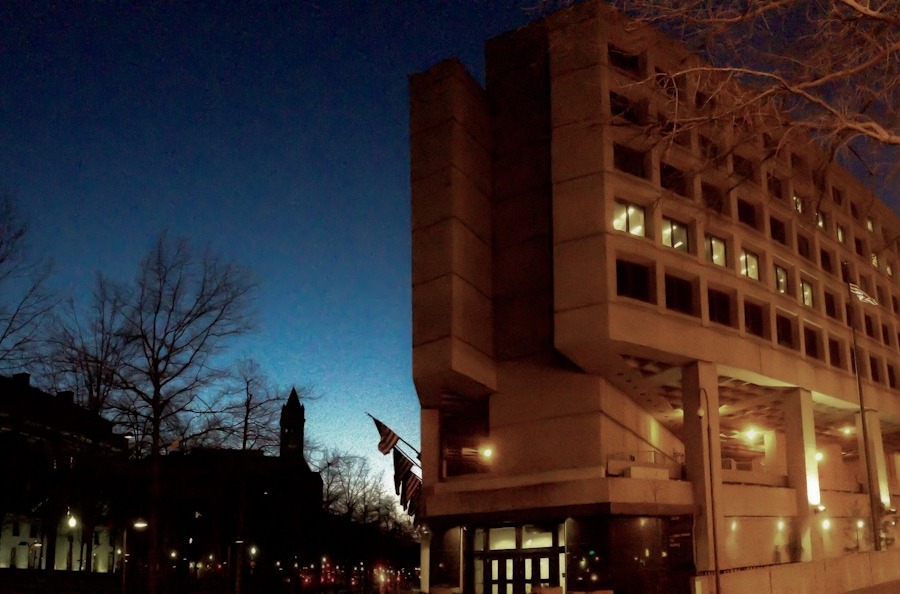A Hard Transparency Choice
Over the weekend, there was a crescendo of reports regarding how Russia may be attempting to influence the US presidential election. Jack provided analysis this morning, including links to several of those reports. The increased attention to the DNC email hack, which, according to multiple reports (from, at least, NPR, the AP, and Buzzfeed within the last couple hours) the FBI has confirmed it is investigating, raises an important question about what information the U.S.
Published by The Lawfare Institute
in Cooperation With

Over the weekend, there was a crescendo of reports regarding how Russia may be attempting to influence the US presidential election. Jack provided analysis this morning, including links to several of those reports. The increased attention to the DNC email hack, which, according to multiple reports (from, at least, NPR, the AP, and Buzzfeed within the last couple hours) the FBI has confirmed it is investigating, raises an important question about what information the U.S. government owes the public in the coming weeks as Americans make the important choice of who to vote for in November. Susan posted a thorough review as well this morning. On the issue of what information the government should release, she proposes that “the best way to mitigate damage is to provide a clear US intelligence assessment as to whether there is Russian involvement and the degree of confidence.”
I have argued on this site in the past – both here and here – that a significant component of Intelligence Community transparency initiatives should include:
substantive transparency about what the intelligence community actually knows about national security threats, how the United States interprets this information, and how that interpretation is connected to policy choices.
The intentional foreign influence over a highly contentious and extraordinarily significant U.S. presidential election in November is certainly a matter of public interest. There is a strong argument that Americans should be informed by their own government that their perceptions and receipt of information through the media and other sources about the political process is being influenced, intentionally, by a foreign government who may prefer one candidate over another. Put crudely, we have a right to know if we’re being conned.
On the other hand, intelligence professionals would likely argue that significant caution should be exercised in releasing information about the issue. First, they might argue, revealing information publicly about what the Intelligence Community knows about the Russian hack would reveal U.S. collection capabilities, or, sources and methods. Second, intelligence professionals might argue that, despite DNI initiatives to improve institutional transparency processes, the Intelligence Community does not owe the public information directly; it owes the President and senior policymakers information, so that they can make informed policy decisions. This approach would be in keeping with the Intelligence Community's appropriate function in government: not to make policy, but to inform policymakers in a neutral manner.
The Intelligence Community has come a long way on transparency since the unauthorized disclosures of classified information begun by Edward Snowden in June 2013. The Director of National Intelligence has released Principles of Intelligence Transparency for the Intelligence Community. The four key principles are:
1) Provide appropriate transparency to enhance public understanding of the IC
2) Be proactive and clear in making information publicly available
3) Protect information about intelligence sources, methods, and activities
4) Align IC roles, resources, processes, and policies to support transparency implementation.
Notably, principle 2.a. is to:
Provide timely transparency on matters of public interest
The DNI also released last year a Principles of Intelligence Transparency Implementation Plan. The Implementation Plan addresses the question of “what” the Intelligence Community should be transparency about. The Plan summarizes that aspect as follows:
First, the IC should be transparent about its governance framework - the rules, authorities, compliance mechanisms, and oversight that guide its activities. Second, the IC should provide more insight into its mission, supported by appropriate information on how it accomplishes that mission.
The first part is a somewhat straightforward. It involves a lot of bureaucratic legwork – identification of responsive documents, interagency coordination and declassification process. This work can be painstaking and cumbersome, but there is probably general consensus by now among the interagency participants regarding how it should work.
The second part – providing more public information about how the IC accomplishes its mission - is harder. How, exactly, can a network of government agencies whose work is intentionally supposed to take place behind closed doors, explain what it does and how it does it? And, when should it do so?
This gets us closer – but not all the way there – to how the U.S government might think about releasing public information about what it does or does not know about the (probable) Russian hack of the DNC emails. Today’s acknowledgment by the FBI that it is conducting an investigation was a quick and necessary answer to a valid public question. But the Intelligence Community will need to wrestle in the coming weeks with how much more information it can – or should – provide to the public on a matter of significant public interest - fair, honest and open elections.


.jpeg?sfvrsn=a5483b0_5)
.jpeg?sfvrsn=773924a2_5)

